Simulation Labs
St. Scholastica’s cutting-edge simulation labs and task trainers empower you to excel in our healthcare programs. As a healthcare leader, we provide an immersive, hands-on experience for you to develop the skills required for a successful career.
A Safe Place to Learn and Grow
St. Scholastica’s state-of-the-art simulation labs are perfect for teaching aspiring healthcare workers essential skills in an environment that mirrors the facilities they’ll work in after graduation. These settings offer you a safe place to try new skills, make mistakes and refine techniques to master those abilities. This hands-on training allows you to overcome the awkwardness of learning essential tasks, such as taking vitals and giving meds. It also gives you room to develop soft skills like decision-making and bedside manner.
Overall, these simulation labs provide you with a valuable opportunity to bridge the gap between classroom learning and real-world practice. By the time you move into clinicals, you will have gained the experience to be confident in working with patients and the ability to succeed.
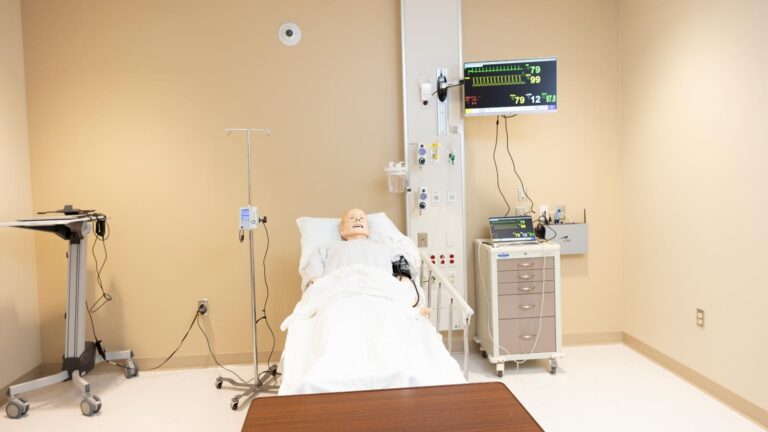
Duluth Sim Lab Facilities
Our healthcare programs offer simulations that allow you to practice essential skills before entering real-world settings. The Duluth Sim Lab offers 39 unique activities and hosts about 200-225 students each week.
Our simulation labs include:
- 4 skills spaces with a variety of beds and equipment
- 5 acute care/home-care spaces
- 4 ambulatory spaces
- 8 debriefing/observation rooms
- 3 control rooms
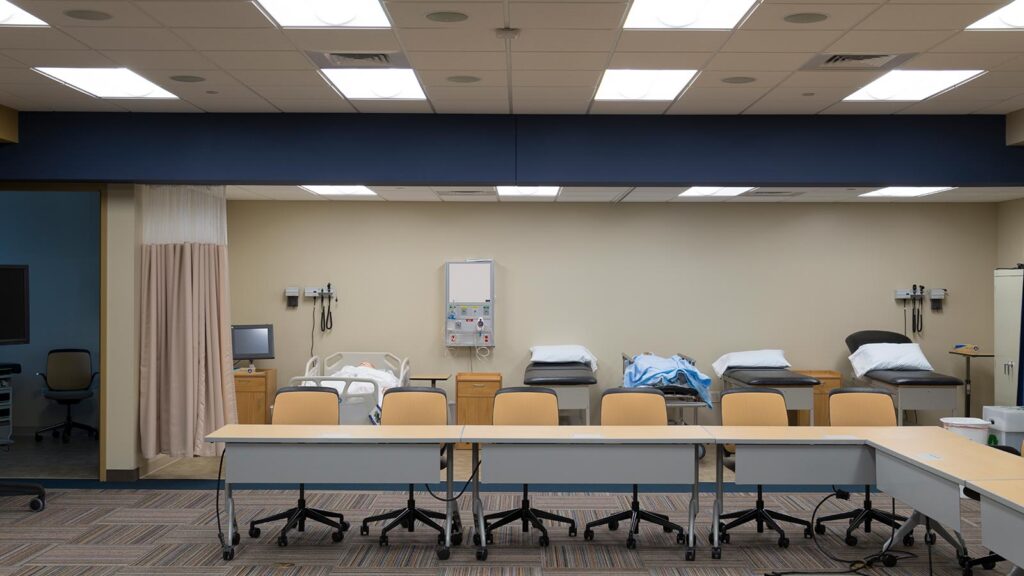
St. Cloud Sim Lab Facilities
Our St. Cloud campus mostly focuses on offering nursing experience to prepare you for your career. The St. Cloud Simulation Lab offers 26 unique activities and hosts around 42 students each week when classes are in session.
This location offers incredible sim labs, including:
- Full functioning nursing station
- 3 skills spaces
- 2 acute care spaces
- 1 acute care/ER space
- 3 ambulatory spaces
- 1 ambulatory/home-care spaces
- 3 debriefing/observation rooms
- 2 control rooms
Simulation Tools
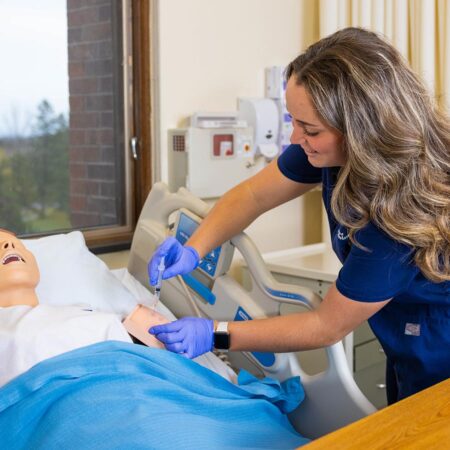
Manikins
Our sim labs have manikins with different capabilities that allow you to practice essential skills. A high-fidelity manikin will offer pulse points, as well as heart, bowel and lung sounds. Medium or low-fidelity manikins have fewer features, such as only having heart and lung sounds. The manikins have interchangeable faces and body parts, so you can practice working on patients of different ages, sexes and skin colors.

Task Trainers
Task trainers are equipment that help you learn specific skills. Some common task trainers we use include CPR trainers, IV stations, wound models and pelvic trainers.
Each task trainer helps build confidence and skill in the tasks you will need when you begin to work with patients. The trainers are the first step in preparing you to be ready for your healthcare career.
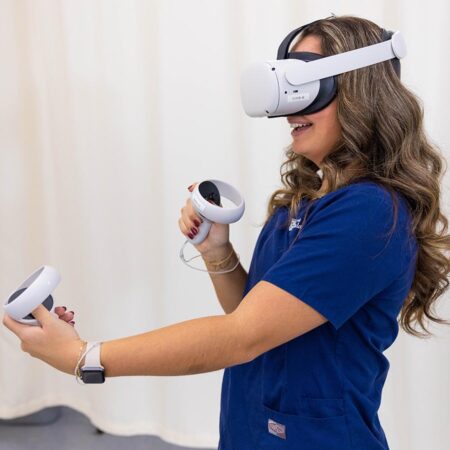
Virtual Reality
Virtual reality enables you and other students to experience a variety of healthcare scenarios. This technology allows you to practice career tasks and focus on soft skills like communication, decision-making and prioritization in patient care situations. You’ll also learn by observing and discussing each other’s virtual reality sessions. It’s a fantastic tool to prepare you to become an invaluable healthcare professional.
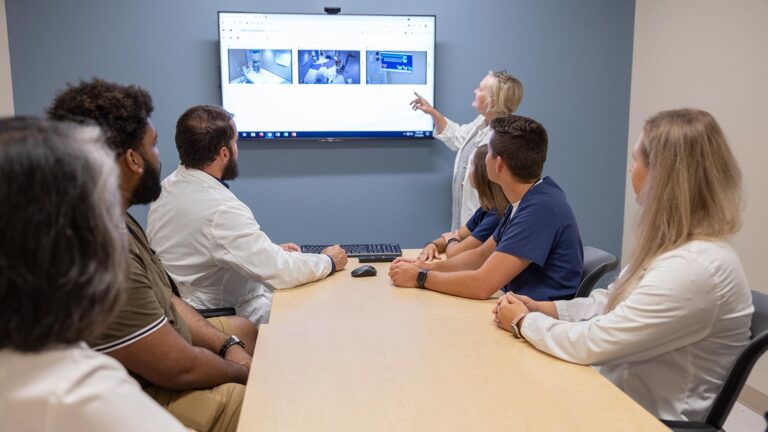
Observations and Debrief
Simulations are monitored by an instructor in a control room, who observes and guides you through each scenario. For sensitive exams, instructors will provide in-person evaluation. After completing a simulation, you will participate in a debriefing process, which is generally about twice as long as the simulation. There, you will be able to reflect and discuss any difficulties you encountered and learn better ways to approach a similar situation in the future.
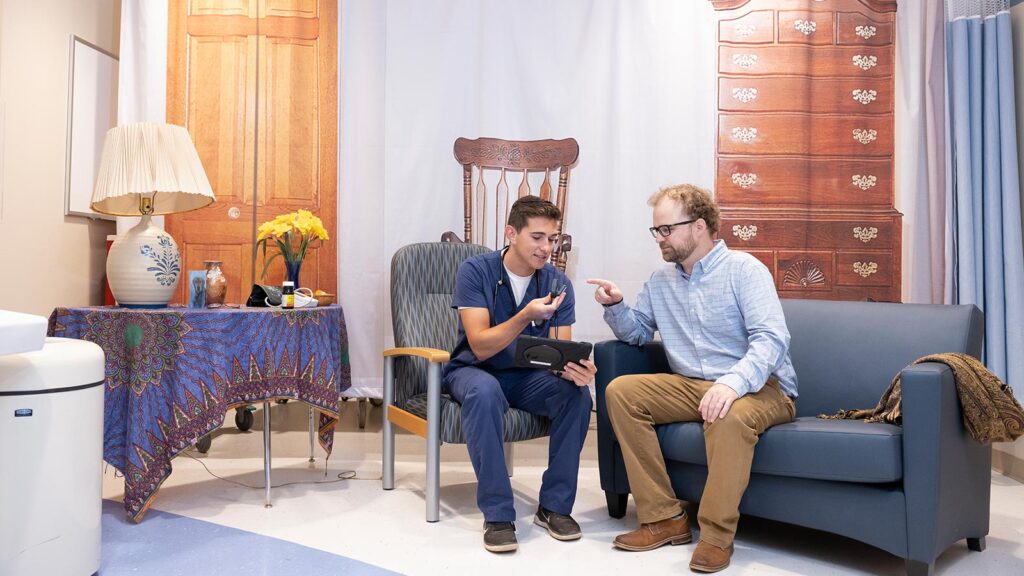
Standardized Patients
As you progress through your training, you will have the opportunity to collaborate with paid community members. This interaction lets students become comfortable working with patients before beginning clinical rotations.
Simulation Lab Benefits
Realistic Practice
You will get the chance to practice medical procedures and interventions on the manikins without the risk of harming actual patients. You’ll be able to refine your technical skills and confidence before encountering similar situations with real patients. The flexible spaces simulate a variety of care settings, providing rich hands-on learning experiences.
Teamwork
In many simulations, you will often work in teams, mirroring the collaborative nature of healthcare. You get to practice communication and coordination with your peers in real-world patient care situations, especially in emergencies. Working as a team will becomes instinctive, which is vital in healthcare practice.
Clinical Decision-Making
Simulation exercises will present you with complex cases that require you to think critically and make decisions under pressure. This will build your clinical judgment and enhance your problem-solving abilities.
Preparation for High-Stakes Situations
Some simulations are designed to recreate high-stress or emergency situations, where you will have to react quickly and effectively. This preparation ensures that you are ready for any challenges that may arise during your clinical rotations or career.

